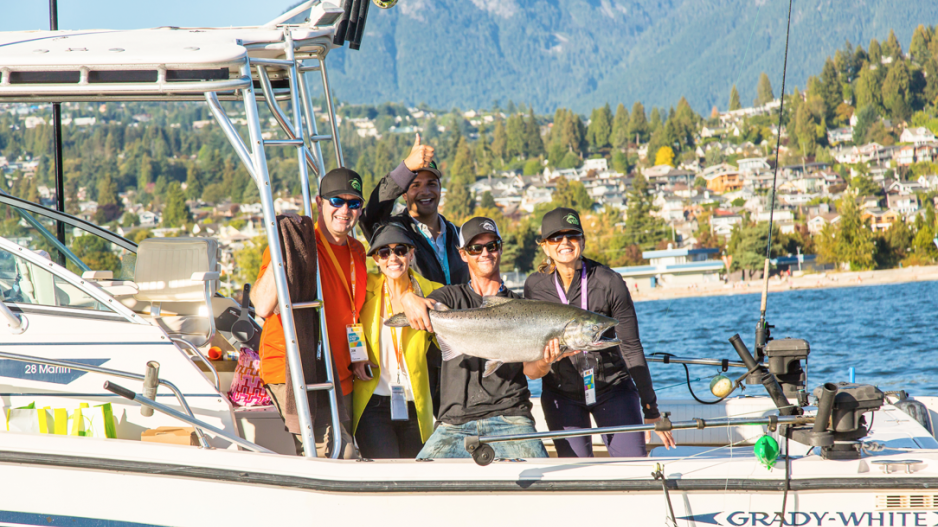The Union of BC Indian Chiefs (UBCIC) is calling on the provincial government and Department of Fisheries and Oceans to ban the practice of catch-and-release for salmon in B.C.
And they are citing the United Nations Declaration the Rights of Indigenous Peoples (UNDRIP), the Canadian government’s commitments to it, and the safeguards it provides for conserving traditional ways of life, to justify the ban.
In October 2019, at its annual general meeting, the UBCIC passed a resolution that calls on federal and provincial governments to increase monitoring of B.C. sport fishery, and to ban catch-and-release for salmon.
But the UBCIC has only now sent out letters to the relevant provincial and federal departments: Fisheries and Oceans Canada and the provincial Ministry of Forests, Lands, Natural Resource Operations and Rural Development.
In their letter, they call on the provincial and federal governments to increase monitoring of the sport fishing sector, and to ban catch-and-release.
“First Nations in British Columbia have long witnessed flagrant double standards around the monitoring of sport fishing and endured the violence of catch-and-release practices,” the UBCIC says in a letter to federal Fisheries Minister Bernadette Jordan and Doug Donaldson, minister of Forests, Lands, Natural Resource Operations and Rural Development.
The UBCIC says UNDRIP, “which the government of Canada has adopted without qualification” has provisions requiring that governments protect traditional aboriginal ways of life.
Specifically, it cites Article 29.1: “Indigenous peoples have the right to the conservation and protection of the environment and the productive capacity of their lands, territories and resources. States shall establish and implement assistance programmes for indigenous peoples for such conservation and protection, without discrimination.”
The UBCIC says First Nations who rely on salmon for food have been “devastated by the effects of climate emergencies, the failures of crown fisheries management, declining catch rates, and marginalization in the industry.”
Typically, anglers are allowed to retain a couple of salmon per day. If they catch more than that, they have to release the fish.
There are concerns, however, that when fish are released, they may be so exhausted and injured that they will become more vulnerable to predators, such as seals and Orcas.
“By catching a fish, removing it from water, injuring it, and then returning it to the water, sport fishing completely disrupts the life cycle of the creature and causes pain for the sake of recreation,” the UBCIC says in its letter.
“First Nations commonly view this practice to be akin to torture, traumatizing the fish and returning it to the water unable to thrive. With interest in protecting the well being of all fish, and a need to conserve and support salmon populations in particular, catch-and-release is contrary to the physical and cultural health of First Nations. Indigenous rights cannot be secondary to sport in BC.”
Jason Assonitis, owner of Bon Chovy Fishing Charters, thinks increased monitoring for the sport fishing sector is a good idea, but said a catch-and-release ban would devastate the sport fishing business in B.C.
Unlike the commercial fishing sector, which must keep records of its catch and report it to DFO, the sport fishing sector isn’t obliged to record and report catch statistics.
Bon Chovy is among a handful of sport fishing guides who voluntarily participate in a catch monitoring program. They record every catch and even take DNA samples, and provide the information to DFO.
He said DFO would lose valuable catch data if sport fishing outfitters were put out of business, and banning catch-and-release would be a good way of doing it.
“It would be devastating,” he said. “I don’t think any business from an economic standpoint could survive. It would be the end.”
“An end to catch and release for the public fishery would have undesirable and unintended consequences for many of our marine resources harvested by all sectors,” said Owen Bird, executive director for the Sport Fishing Institute of BC.
“And, it would unnecessarily impact an activity that raises awareness and provides valuable data about B.C.’s coastal and ocean resources, contributes funding and volunteer resources to conservation and enhancement projects and generates $1.1 billion for coastal communities and the economy of B.C.”
Read the original article .



